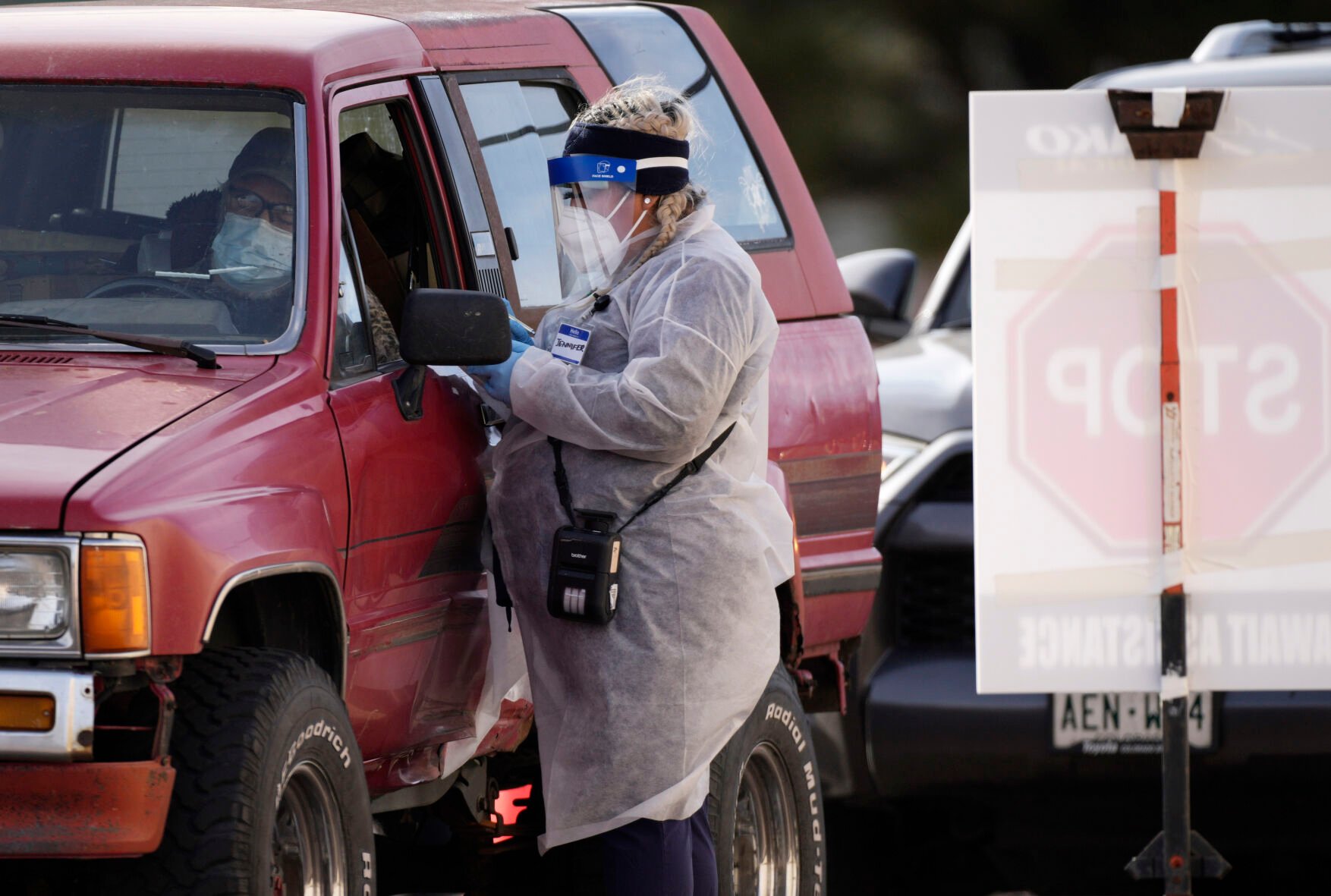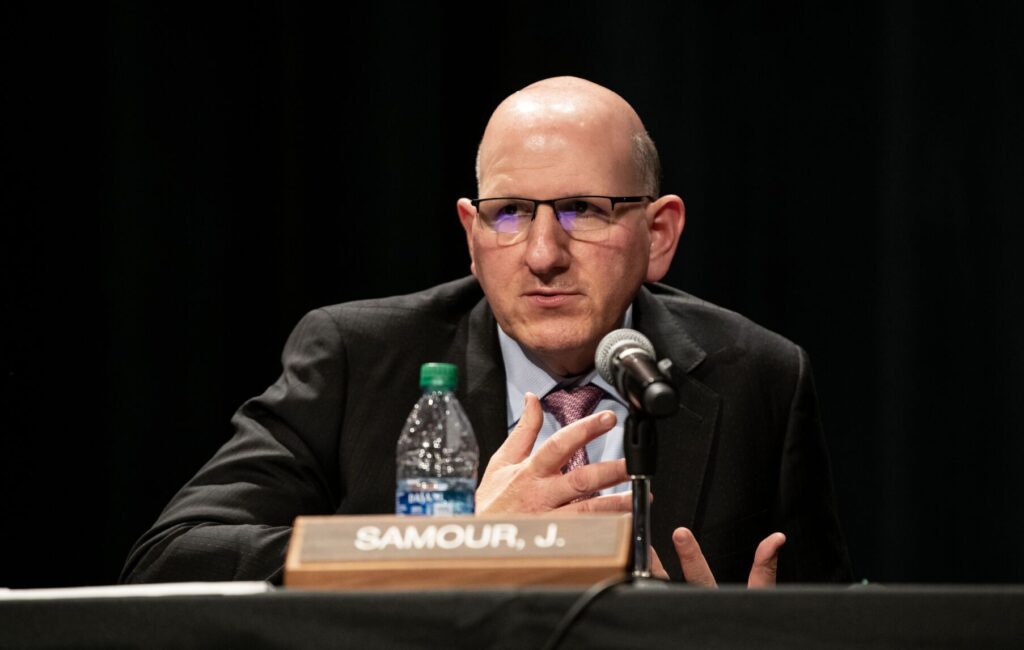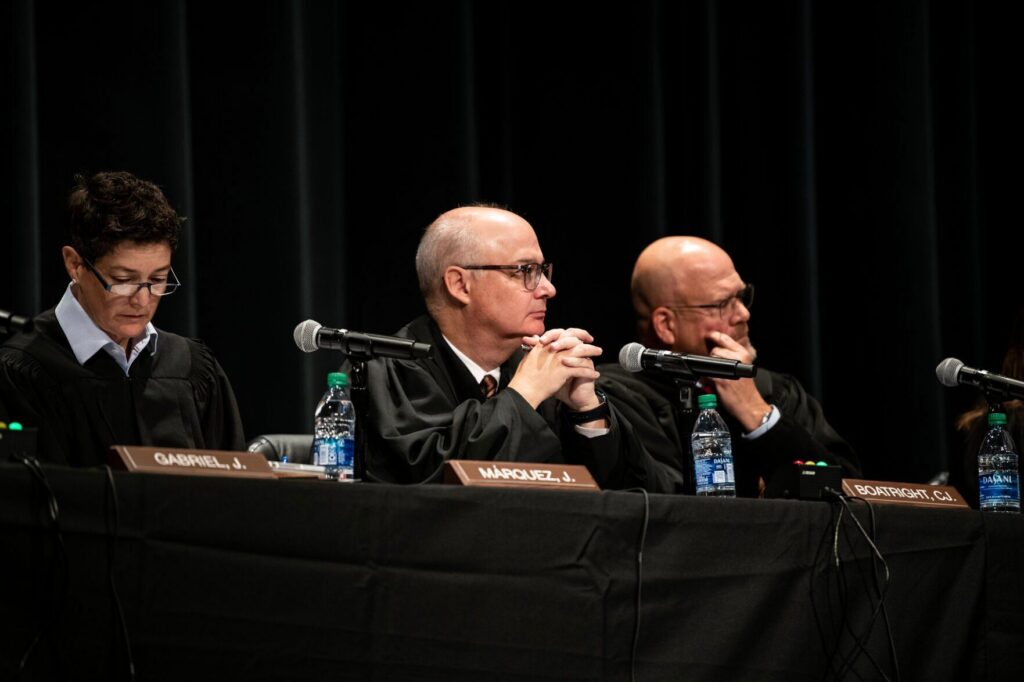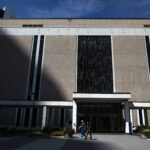Colorado’s property tax system hangs in balance as state Supreme Court mulls COVID-19 challenges
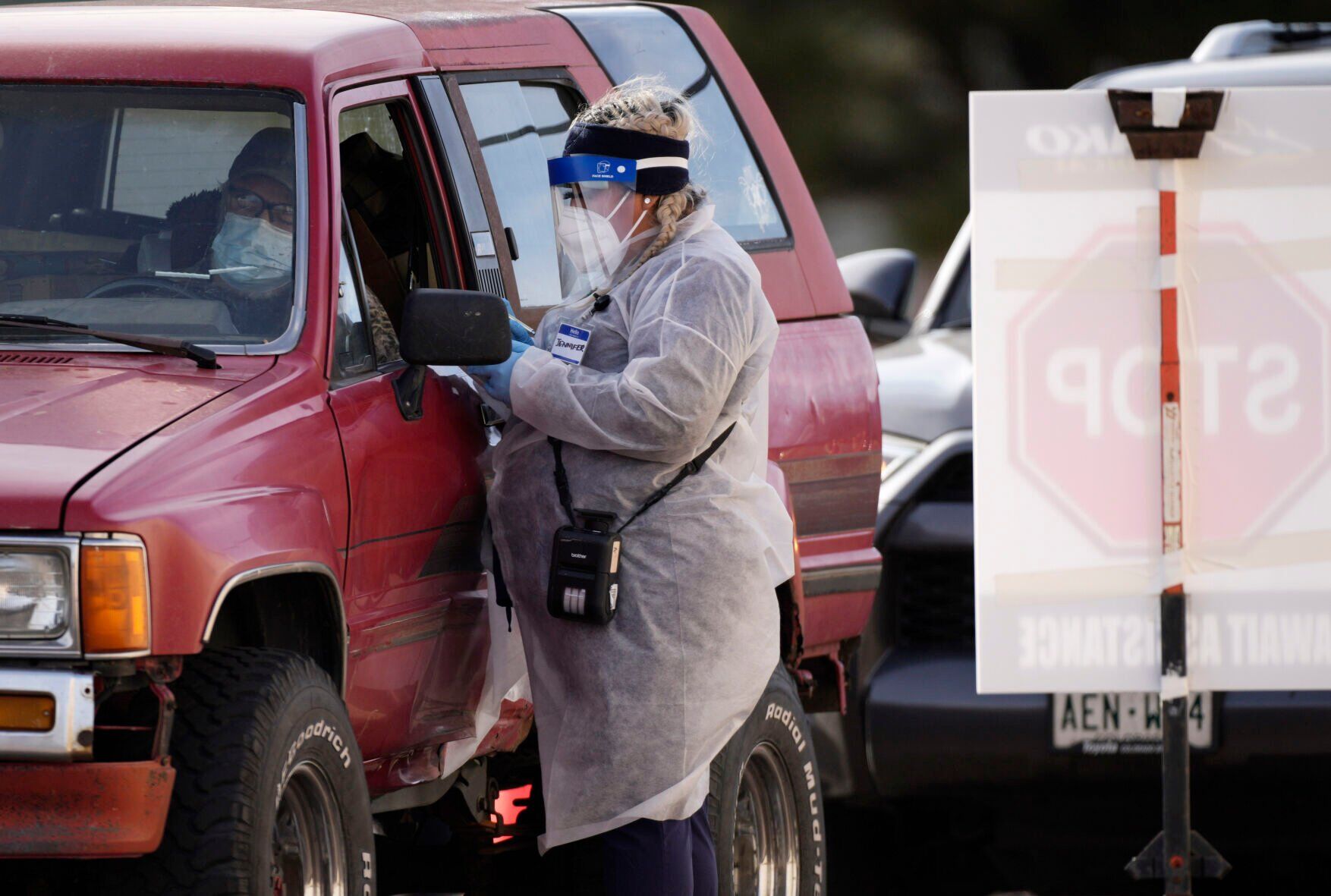
Colorado’s Supreme Court justices on Wednesday spent three hours pondering a pair of questions that could open the door to widespread, perhaps even perpetual, property revaluations across the state: Did COVID-19 and the accompanying public health orders in 2020 constitute “unusual conditions” necessitating a reexamination of property values?
And did those revaluations need to happen outside of the seemingly-fixed calendar in state law?
The members of the court appeared reluctant during oral arguments to deviate from a property tax methodology that, by design, is not based on real time changes to land and building value.
“Isn’t that sort of how the whole scheme works? That you’re always paying your property taxes on a value that is lagging?” asked Justice Melissa Hart. “We’re always looking back.”
Late last year – and at the unusual behest of the state’s Court of Appeals – the Supreme Court took up four appeals directly from the trial courts in which dozens of commercial property owners sought to have county assessors revalue their properties for 2020.
In total, 11 virtually-identical lawsuits were filed across Colorado.
Under state law, Jan. 1 is the assessment date for property values each year. Assessments happen in two-year cycles, based on data from Jan. 1 of an odd-numbered year through June 30 of an even-numbered year. Assessors use the information to set the property value on Jan. 1 of the ensuing odd-numbered year for the next cycle.
There is an exception, however, for “unusual conditions” that occur between valuations.
Assessors must revalue properties in the event of remodeling, onsite improvements or fire. Unusual conditions also include “detrimental acts of nature” and “any new regulations restricting or increasing the use of the land.”
The property owners argued COVID-19 was a detrimental act of nature and the public health orders that closed or limited operations at many businesses in 2020 were regulations that restricted the use of their property. They sought to trigger a revaluation, and reduction, of their property values for 2020.
“The regulations that completely closed a business is obviously a regulation that prohibits you, at least temporarily, from operating it for any purpose. So, you’re not allowed to use the land,” argued lawyer James P. Bick Jr. to the Supreme Court. “I think that qualifies as a regulation that restricts the use of the land upon which the business is on.”
To date, trial judges reached varying conclusions about whether unusual conditions existed and whether a revaluation could even happen for 2020 after Jan. 1.
The parties acknowledged to the Supreme Court that, if the justices ruled against the property owners on either issue, the lawsuits would be doomed.
Lawyers for the counties argued that events in 2020 affecting property values would be properly accounted for with the next property tax cycle beginning in 2021, and local governments need stability in their budgets based around the Jan. 1 cutoff date.
In that vein, Hart read off the timeline of various COVID-19 health orders in 2020 to illustrate how many potential revaluations could occur if the Jan. 1 cutoff did not apply.
“March 25 was the Larimer County stay-at-home order. May 18, Larimer got a variance and relaxed mask mandates and opened up again,” she said. “March 25 – they would have needed a revaluation. And May 18 – they would have needed to have a property value increase.”
Deputy County Attorney David Ayraud agreed the implications were untenable for local governments.
“A hotel of 120 rooms, if they remodel at a rate of two to three days per room, the assessor would have to go out every two to three days for the next 240 to 360 days and issue new assessments,” he said.
In October, the Court of Appeals decided the first of the 11 cases, arising from Weld County. While the court declined to say whether COVID-19 and the public health orders were unusual conditions, it did agree assessors must consider unusual conditions that happen beyond Jan. 1 of each year. Therefore, the property owners could seek a revaluation in 2020 based on pandemic-related developments.
In weighing the implications of a mid-cycle change to property values, some members of the court turned to another recent, disruptive event: the Marshall fire in Boulder County.
“My house is destroyed on Dec. 30,” said Justice Maria E. Berkenkotter hypothetically to Ayraud. “Justice Hart’s house is taken out three days later, let’s say on Jan. 2. Under your interpretation of the statute … that could not be considered for two more years, correct?”
Hart took the analogy in a different direction. Suppose, she said, the Marshall fire did not touch a dry cleaner shop but caused affected homeowners to cease coming to the store, negatively affecting the business.
Was that a detrimental act of nature affecting the use of the land?
“I think that might pose a closer call than what we have in this case,” said plaintiffs’ attorney Matthew A. Simonsen.
“It’s a detrimental act of nature without any debate,” Hart interjected. “Why isn’t it either exactly the same or, actually, a stronger case” than COVID-19?
The justices also questioned how severe a governmental regulation must be in order to qualify as an unusual condition. They asked if, under the plaintiffs’ interpretation of the law, a health inspector shutting down a restaurant for code violations would entitle the restaurant owner to a property tax revaluation.
“I think, technically, yes,” Bick responded.
Berkenkotter noted that some of the property owners in the litigation, at face value, did not appear to have suffered from the public health orders. She pointed out that the plaintiffs included at least one funeral home – an essential business allowed to operate during the early pandemic.
Ultimately, the law did not provide a definitive answer about whether a deadly virus that infects humans also falls into the category of conditions restricting the use of property.
“Zoning clearly affects the use of land. An impact on a person? Not so clear,” said Justice Richard L. Gabriel.
Quoting a famous line from a U.S. Supreme Court case about obscenity, Justice William W. Hood III mused that it appeared difficult to define an unusual condition affecting land.
“It sort of sounds like a pornography test right now. You know it when you see it, right?”
The appeals arose from Larimer, Douglas, Jefferson and Broomfield counties.
